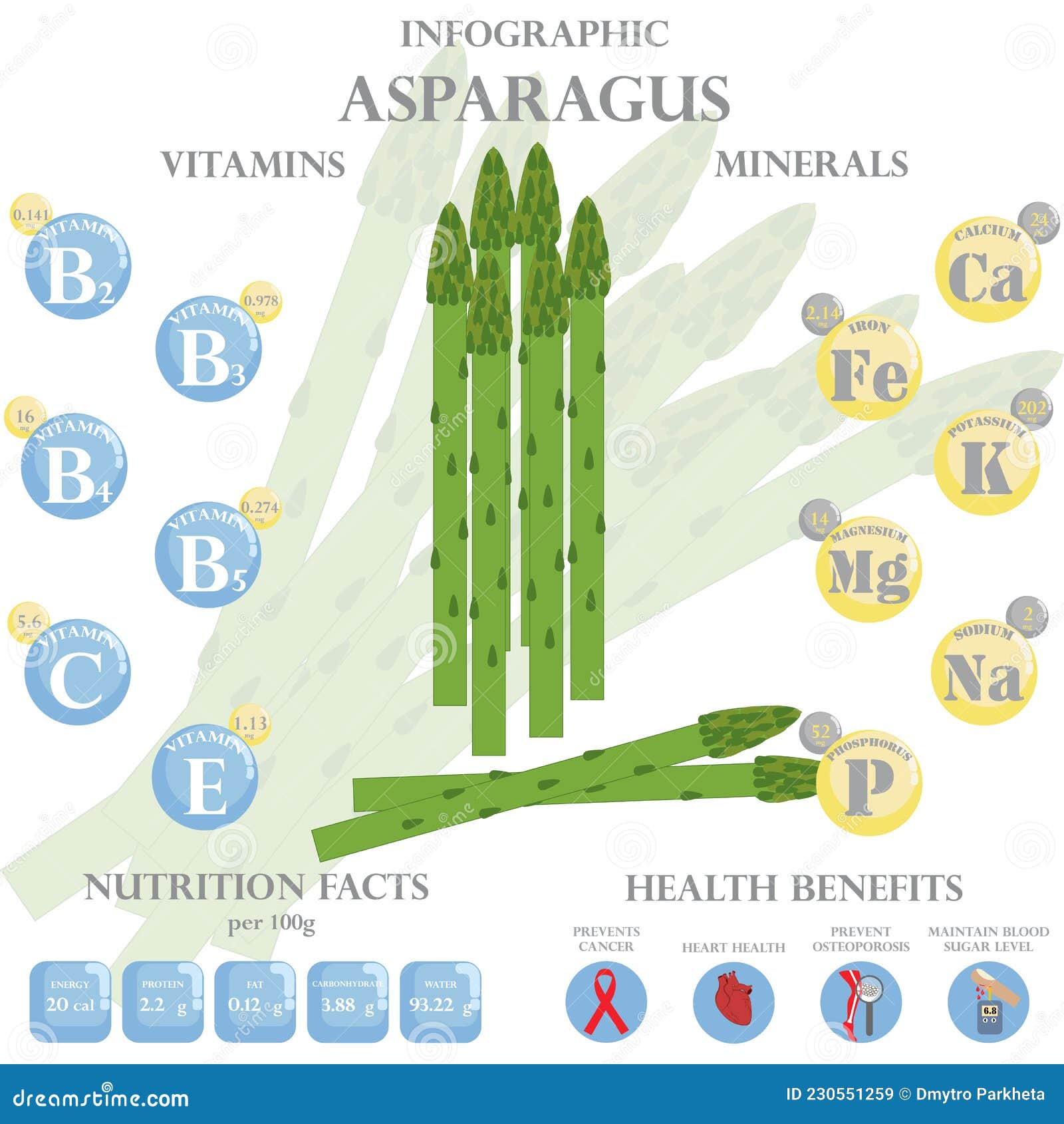Asparagus Nutrition: How This Vegetable Supports Your Health

Table of Contents
Asparagus: A Rich Source of Essential Vitamins and Minerals
Asparagus is a nutritional champion, offering a wealth of essential vitamins and minerals crucial for maintaining optimal health. Its nutritional profile makes it a valuable addition to any healthy eating plan.
Vitamin K and Bone Health
Asparagus is an excellent source of Vitamin K, a vital nutrient for bone health. Vitamin K plays a crucial role in activating proteins required for bone mineralization, increasing bone density, and reducing the risk of fractures.
- Vitamin K contributes significantly to bone metabolism and strength.
- Adequate Vitamin K intake is associated with a lower risk of osteoporosis and other bone-related diseases.
- Asparagus can help you reach the recommended daily intake of Vitamin K, contributing to stronger, healthier bones.
Folate for Cell Growth and Development
Asparagus is also rich in folate (folic acid), a B vitamin essential for cell growth and development. This nutrient is particularly important during pregnancy, as it plays a crucial role in preventing neural tube defects in developing fetuses.
- Folate is vital for DNA synthesis and cell division, supporting healthy growth and development throughout life.
- Adequate folate intake is crucial for pregnant women to support the healthy development of their baby.
- Asparagus is a readily available and delicious source of folate, contributing to the recommended daily allowance.
Other Essential Nutrients
Beyond Vitamin K and folate, asparagus boasts a impressive array of other essential nutrients that contribute to overall health.
- Vitamin A: Supports vision, immune function, and cell growth.
- Vitamin C: A powerful antioxidant that boosts the immune system and protects against cell damage.
- Vitamin E: Another potent antioxidant that protects cells from damage caused by free radicals.
- Fiber: Promotes healthy digestion, regulates blood sugar, and supports gut health.
- Potassium: Important for maintaining healthy blood pressure and fluid balance.
Asparagus and its Impact on Overall Health
The nutritional richness of asparagus translates into a multitude of positive effects on overall health.
Antioxidant Properties and Disease Prevention
Asparagus is a good source of antioxidants, which combat free radicals – unstable molecules that can damage cells and contribute to chronic diseases.
- Antioxidants in asparagus help protect against oxidative stress, reducing the risk of heart disease, certain cancers, and other chronic illnesses.
- Asparagus contains various antioxidants, including glutathione and flavonoids, which contribute to its protective effects.
Improved Digestive Health
The high fiber content in asparagus is beneficial for digestive health.
- Fiber promotes regularity, preventing constipation and supporting healthy bowel movements.
- Fiber also feeds beneficial gut bacteria, contributing to a balanced gut microbiome and improved digestive function.
Blood Sugar Regulation
Asparagus has a low glycemic index (GI), meaning it doesn't cause a rapid spike in blood sugar levels.
- This makes it a suitable food for individuals with diabetes or those at risk of developing the condition.
- The fiber content in asparagus also helps regulate blood sugar by slowing down the absorption of glucose.
Incorporating Asparagus into Your Diet
Asparagus is a versatile vegetable that can be easily incorporated into a variety of dishes.
Delicious and Versatile Asparagus Recipes
Asparagus can be prepared in countless ways, making it a delightful addition to any meal.
- Roasted Asparagus: Toss with olive oil, salt, and pepper, then roast until tender-crisp.
- Asparagus Soup: Blend roasted asparagus with vegetable broth for a creamy and nutritious soup.
- Asparagus Pasta: Add blanched asparagus to your favorite pasta dish for a boost of flavor and nutrients. [Link to a relevant recipe]
Buying and Storing Asparagus
Choosing and storing asparagus properly helps maintain its nutritional value and flavor.
- Select asparagus spears that are firm, bright green, and have tightly closed tips.
- Store asparagus in the refrigerator in a plastic bag or wrapped in a damp paper towel to keep it fresh for several days.
Reap the Rewards of Asparagus Nutrition
In conclusion, asparagus is a nutritional powerhouse offering a wide array of health benefits. From strengthening bones with Vitamin K to supporting cell growth with folate and protecting against chronic diseases with its antioxidants, asparagus is a valuable addition to any healthy diet. By incorporating this versatile vegetable into your meals regularly, you can boost your health with asparagus nutrition, discover the amazing benefits of asparagus nutrition and improve your diet with asparagus nutrition. Start enjoying the delicious and healthy goodness of asparagus today!

Featured Posts
-
 How To Watch Eurovision 2025 In Australia A Complete Guide
May 01, 2025
How To Watch Eurovision 2025 In Australia A Complete Guide
May 01, 2025 -
 Hollywood Actress Priscilla Pointer Dies At 100 A Career Retrospective
May 01, 2025
Hollywood Actress Priscilla Pointer Dies At 100 A Career Retrospective
May 01, 2025 -
 Il Caso Becciu Papa Francesco E Le Voci Di Dimissioni
May 01, 2025
Il Caso Becciu Papa Francesco E Le Voci Di Dimissioni
May 01, 2025 -
 Retailers Warn Temporary Reprieve On Tariff Price Hikes
May 01, 2025
Retailers Warn Temporary Reprieve On Tariff Price Hikes
May 01, 2025 -
 Army Chyf Ka Byan Ds Jngwn Ky Dhmky Awr Kshmyr Ky Hqyqt
May 01, 2025
Army Chyf Ka Byan Ds Jngwn Ky Dhmky Awr Kshmyr Ky Hqyqt
May 01, 2025
Latest Posts
-
 The Secs Xrp Ruling Understanding The Implications For Investors
May 02, 2025
The Secs Xrp Ruling Understanding The Implications For Investors
May 02, 2025 -
 Xrp Regulatory Status Latest News And Impact Of Sec Decision
May 02, 2025
Xrp Regulatory Status Latest News And Impact Of Sec Decision
May 02, 2025 -
 Is Xrp A Commodity Sec Classification And The Ongoing Debate
May 02, 2025
Is Xrp A Commodity Sec Classification And The Ongoing Debate
May 02, 2025 -
 Xrp News Sec Commodity Classification And Regulatory Uncertainty
May 02, 2025
Xrp News Sec Commodity Classification And Regulatory Uncertainty
May 02, 2025 -
 Post Sec Lawsuit A Comprehensive Xrp Price Prediction
May 02, 2025
Post Sec Lawsuit A Comprehensive Xrp Price Prediction
May 02, 2025
